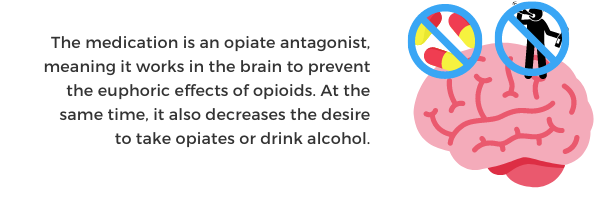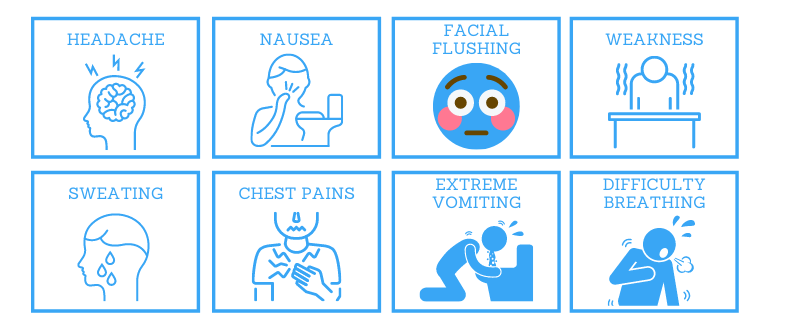Medication-Assisted Treatment (MAT) for Alcoholism
Seeking professional treatment for alcoholism is a vital component to recovery as attempting to quit alcohol without medical intervention can lead to severe withdrawal complications and even death. While in recovery from alcohol, which is readily available at bars, liquor stores, and clubs, the process can be made significantly smoother and safer with medically assisted treatment (MAT). The goal of medically assisted alcohol treatment is to ease the withdrawal symptoms in a safe environment in which the individual will be supervised around the clock by medical professionals. We offer a variety of care options including medication-assisted treatment for alcoholism. MAT combines a traditional approach to treating alcoholism with medications to alleviate withdrawal symptoms in a safe and comfortable atmosphere.
Individual and group therapy are key components of medication-assisted treatment programs for alcohol addiction. This method of treatment aims to lessen cravings while also promoting long-term recovery from alcoholism. Effective MAT for alcohol use disorder and dependence include FDA approved medications such as Naltrexone, Vivitrol, Disulfiram, Benzodiazepines, and Acamprosate. This comprehensive approach to alcoholism is why MAT programs are often suggested. This specific type of treatment addresses many of the obstacles that often lead to relapse while allowing clients to focus on the internal work required for recovery.
Benzodiazepines for Alcohol Detox
During the alcohol detoxification process, long-acting benzodiazepines such as Valium and Librium are often used to help mitigate the withdrawal symptoms. Because benzodiazepines work on the same receptors of the brain as alcohol, these drugs are often administered during the acute detoxification phase. Oftentimes, the individual is immediately given the drug to mitigate the dangerous withdrawal symptoms of alcoholism and then slowly tapered off. Typically, benzodiazepines are only administered during the initial alcohol detoxification phase. Approximately 5 days after their last drink, the individual will often be administered a safer alternative that is FDA approved from alcohol abuse.
Medications Used for Alcoholism Treatment
While alcohol detox is typically managed with a benzodiazepine taper, some of the most important medications used in medication-assisted treatment for alcoholism are those that are used after detox. These include:
- Naltrexone (Revia, Vivitrol)
- Disulfiram (Antabuse)
- Acamprosate (Campral)
Each of these medications work in different ways to help stave off alcohol cravings and prevent people from picking up a drink.
Naltrexone
Naltrexone is an FDA approved medication that blocks the euphoric effects and feelings of intoxication that many people experience when consuming alcohol. Commonly used for opioid treatment, Naltrexone blocks the opioid receptors in the brain and commonly used to decrease cravings. It is believed that the brain interacts and releases the same chemicals associated with opioid abuse when an individual consumes alcohol. Therefore, when used in medication-assisted treatment, naltrexone is known to be equally effective in treating alcoholism.

Administered in either a tablet form (ReVia and Depade) or injectable form (Vivitrol), individuals who abuse alcohol will no longer experience a euphoric reward from drinking once they begin the naltrexone treatment. It is important to remember that naltrexone does not mitigate the symptoms of alcohol withdrawal. Therefore, the individual must undergo a complete detoxification from alcohol before beginning naltrexone treatment. Just as with all other medications used in MAT, naltrexone works best when administered in conjunction with psychotherapy and a comprehensive treatment plan.
Disulfiram (Antabuse)
Another common medication-assisted treatment drug for alcoholism is Disulfiram, commonly known as antabuse. Effective for individuals who have already completed alcohol detox, Disulfiram is taken once a day in tablet form. This specific MAT drug deters individuals from abusing alcohol by producing unpleasant, side effects when a person consumes alcohol, such as:

These hangover-like effects typically begin 10 minutes once alcohol enters the body and lasts for an hour or longer. Due to the uncomfortable and even dangerous side effects of this medication, some alcohol rehab centers in West Palm Beach choose not to use this drug during MAT. Disulfiram is not a cure for alcoholism, but rather a deterrent utilized to discourage alcohol consumption.
Acamprosate (Campral)
Much like disulfiram and naltrexone, acamprosate is utilized specifically for individuals who have completed the initial withdrawal symptoms of alcohol treatment. Administered in tablet form, this medication is to be taken three times a day. Acamprosate treatment typically begins on the fifth day of abstinence and is most effective within 5-8 days after this specific MAT begins.
Acamprosate, also sold under the brand name, Campral, is one of the most common medications used in MAT for alcohol abuse disorder. This drug is known to reduce cravings and minimize alcohol withdrawal symptoms. Acamprosate changes the brain’s chemistry and functionality, ultimately reducing the brain’s dependence on alcohol. Acamprosate does not prevent alcohol withdrawal symptoms and should only be administered once the individual has completely detoxed from alcohol.
Integrated Alcohol Counseling
As previously mentioned, there is no cure for alcoholism. As a result, these medications only serve as a portion of the alcohol rehab process. In fact, the most important part of medication-assisted treatment is behavioral therapy and peer support.
Throughout the course of treatment, patients participating in a medication-assisted treatment program for alcoholism will be required to actively participate in a comprehensive treatment program that integrates mental health therapy, behavioral counseling, and support groups into one’s recovery. Some therapies and activities patients can expect include:
- Cognitive-behavioral therapy (CBT)
- Group therapy
- One-on-one counseling
- Holistic therapy
- 12-Step facilitation
- Nutritional counseling
- Relapse prevention
The purpose of these therapies is to arm individuals with the coping skills and resources they need to stay sober. While medications help reduce cravings, therapy and peer support allows patients to learn about why they abuse alcohol in the first place and how to cope in healthy ways.
Integrated treatment also helps address co-occurring disorders, trauma, family therapy, and more to provide a whole-patient approach. Most importantly, patients will work closely with their primary therapist and a physician to monitor their progress throughout treatment, make necessary adjustments, and further support the individual.
Medication-Assisted Treatment for Alcoholism
At BBH, our medical staff works collaboratively with our clients to create a medication regimen that is most appropriate for them. We focus on the lowest effective dose to decrease side effect potential while still maintaining the highest effectiveness of the medication. Our medication-assisted treatment program not only provides medication to treat a person’s physical addiction, but we also provide counseling and social support to treat the psychological and emotional aspects of alcoholism as well.
Our compassionate staff understands the path to recovery is not an easy one. At BBH, we focus on offering patients a personalized care plan that meets their individual needs. If you believe you or your loved one can benefit from MAT for alcohol addiction treatment and would like more information, contact our team at (614) 218-2766 or fill out the contact form we will contact you.
